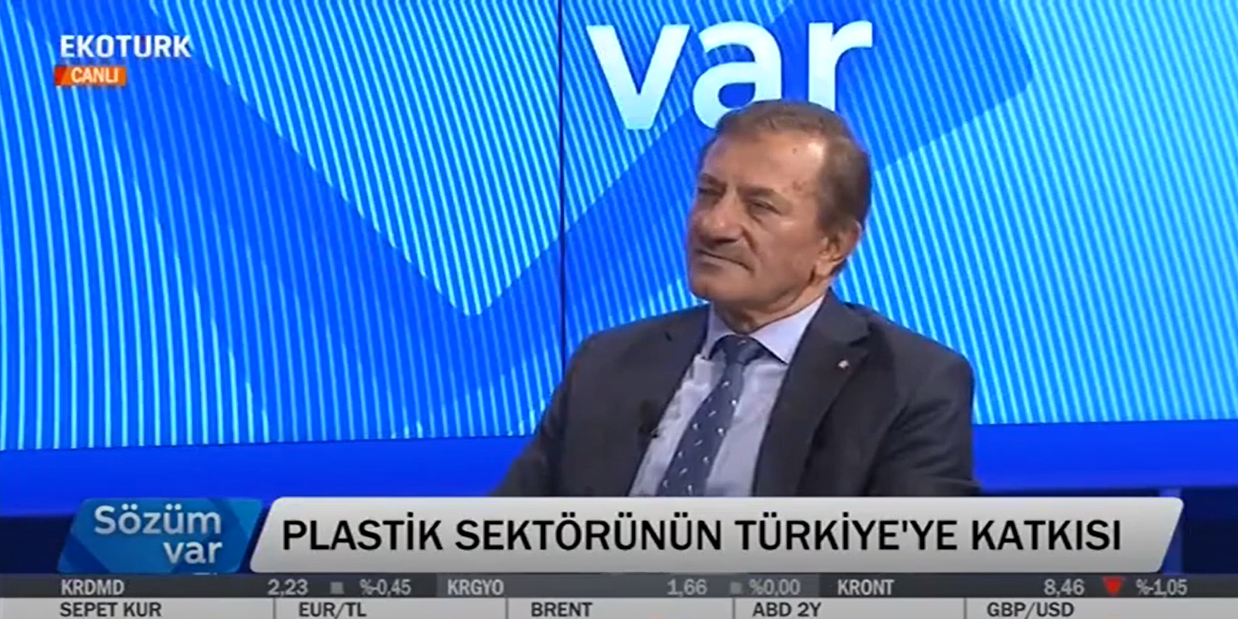
Ömer Karadeniz, Chairman of the Board of Directors of the Plastic Industry Federation (PLASFED), one of the widest representation platforms of the Turkish industry, made important statements on the Sözüm Var program he participated in on Ekotürk TV.
Despite the contraction in production due to the exchange rate shock experienced in the second half of 2018, Ömer Karadeniz stated that the Turkish plastic sector ranks second in Europe and is competing with South Korea for sixth place in the world.
Ömer Karadeniz emphasized the importance of R&D and design for the transition to value-added production, stating that collaborations with foundational organizations such as ISO, ITO, and İKMİB will continue to intensify in the areas of university-industry cooperation, which is the most important area on the path to Industry 4.0.
Addressing the negative perception of plastics, Ömer Karadeniz said: “We need to spread the education provided in the fields of environment and recycling and explain to the public that plastic waste is a serious value that needs to be reintegrated into the economy.” He continued, “Especially in Western European countries, the deposit applications and the commitments of companies operating in the industry within the scope of extended producer responsibility will significantly advance the circular economy in a short time.” Karadeniz mentioned that they view the zero waste project initiated in our country positively, but emphasized that much better developments could be achieved with the contributions of NGOs operating in this area and increasing education on this issue by the relevant authorities. He underlined the necessity for local governments to be more sensitive in these matters.
Finally, discussing the contributions of plastic to the environment, Ömer Karadeniz stated: “Plastic packaging extends the shelf life of food, prevents waste, reduces the emission of methane, one of the most dangerous greenhouse gases, and due to being much lighter compared to alternative products, it enables the use of less fuel in logistics processes.” He noted that if the use of plastic per vehicle increases from 190 kg to 275 kg, the carbon footprint would decrease by 38%, and in agriculture, the use of plastic would lead to productivity increases of up to 60% and reduce water consumption by 30%. Karadeniz concluded that the most effective way to reduce our carbon footprint is to use plastic and promote recycling.
Translated by Artificial Intelligence
